Vietnam stands as one of the foremost mango producers in Southeast Asia. Especially, it is renowned for both the quality and diversity of its mango varieties. The country benefits from a favorable tropical climate, characterized by abundant sunlight and consistent rainfall. Moreover, its fertile, well-drained soil also creates ideal conditions for the cultivation of Vietnamese mango.
Over the past decade, Vietnamese mango has experienced significant growth in both domestic and international demand. It reflects the fruit’s superior taste, texture, and nutritional value. This growth has made mangoes a major Vietnam’s agricultural export, significantly contributing to Vietnam’s economy.
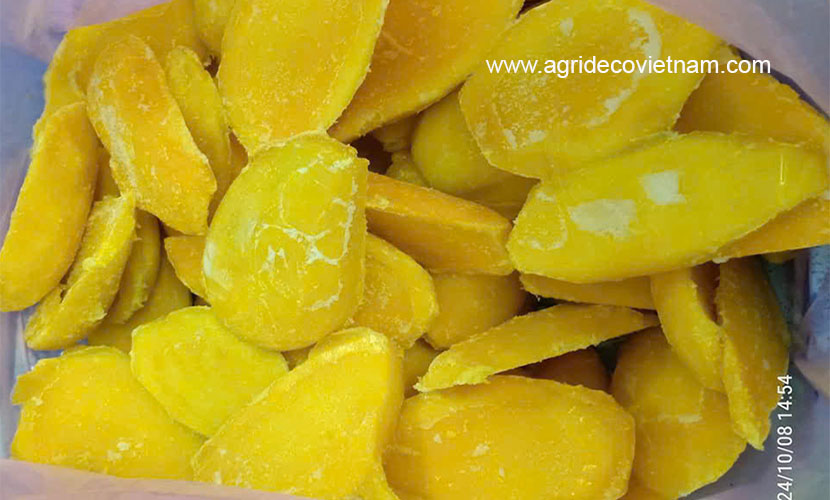
Frozen mango from Vietnam
The government and local enterprises have actively invested in modern farming techniques, post-harvest handling, and export logistics. These efforts have further enhanced the competitiveness of Vietnamese mango in global markets. As a result, Vietnam continues to solidify its reputation as a major and reliable supplier of high-quality mangoes worldwide.
Currently, the total area dedicated to mango cultivation in Vietnam surpasses 114,000 hectares. The country produces between 700,000 and 800,000 tons of Vietnamese mangoes annually. Among the country’s diverse agricultural regions, the Mekong Delta stands out as the principal area for mango cultivation. This area encompasses approximately 49,900 hectares.
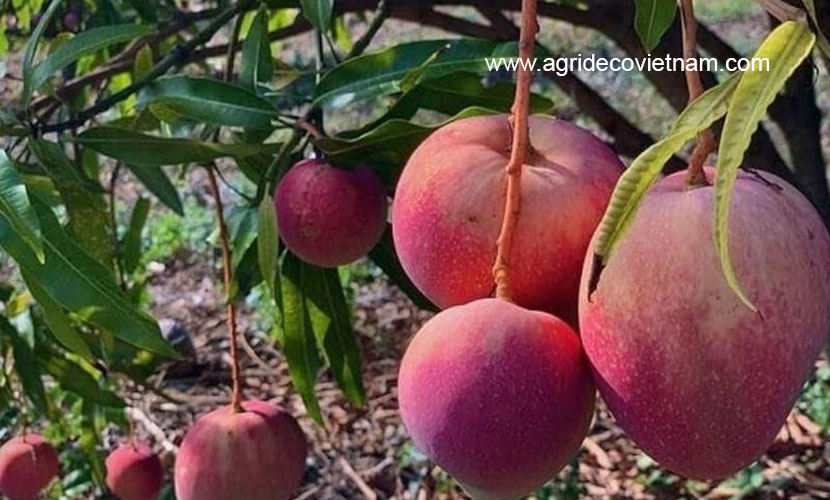
Vietnamese mango farm
The region’s unique combination of fertile alluvial soil and abundant water resources supports Vietnam’s mango cultivation. Its favorable climatic conditions further create an optimal environment for the growth of high-quality mangoes. Over the years, extensive investment in modern horticultural practices has enhanced mango yields. Specifically, they included improved irrigation, pest management, and post-harvest handling.
These efforts have also improved the quality of Vietnam’s mangoes produced in this region. As a result, the Mekong Delta has maintained its position as the heart of Vietnam’s mango production. It also plays a pivotal role in meeting the growing demand for Vietnamese mango in domestic and international markets.
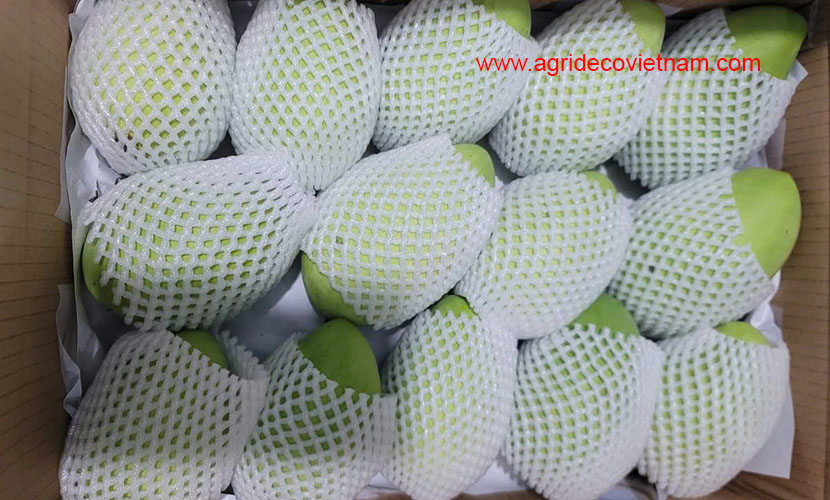
Fresh mango from Vietnam
Several provinces in Vietnam have emerged as leading centers for high-quality mango cultivation. They are distinguished by both their extensive cultivation areas and substantial production outputs. Among them, Son La, Dong Thap, and An Giang are the main contributors to the country’s mango industry.
In particular, Dong Thap Province plays a pivotal role in high-quality mango cultivation. It has over 14,000 hectares of mango orchards and an annual production approaching 140,000 tons. The province’s fertile soil and favorable climate support mango cultivation. Its well-established irrigation systems provide an ideal environment for producing high-quality mangoes.
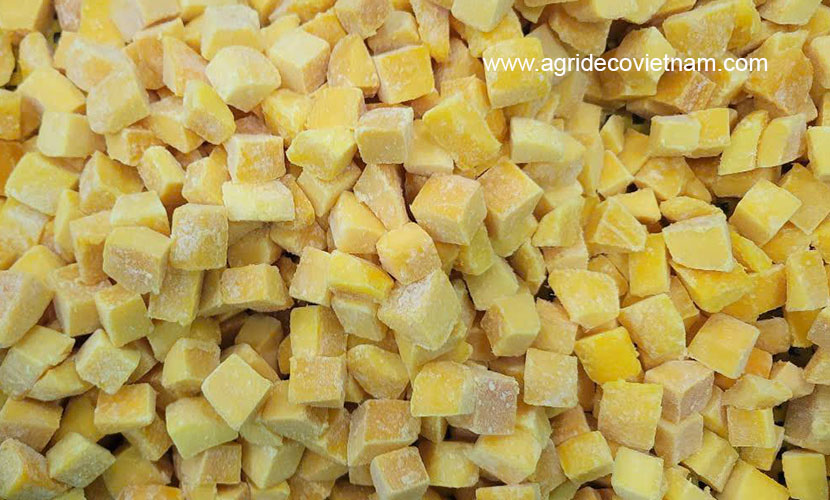
Frozen mango slices from Vietnam
Local authorities and farmers have invested in modern agricultural techniques. They included advanced pest management, selective harvesting, and post-harvest preservation methods. These efforts collectively enhance both productivity and fruit quality. Consequently, these provinces sustain Vietnam’s domestic mango supply. They also contribute significantly to the nation’s growing presence in international fruit markets.
Vietnamese mango has gradually established a notable presence in over 30 countries worldwide. This reflects the increasing recognition of their quality and appeal in international markets. This expanding global footprint has enhanced the overall value of Vietnamese agricultural products. It has also strengthened their reputation on the world stage.
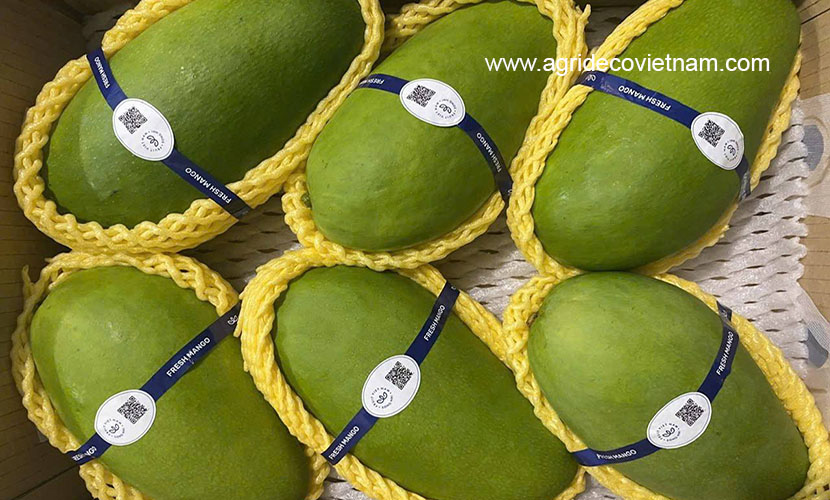
Vietnamese fresh mango
Through sustained efforts in improving cultivation practices, post-harvest handling, and export logistics, Vietnam has succeeded in meeting rigorous standards. These standards are demanded by diverse overseas markets. As a direct consequence of these developments, the country has become the 13th largest mango exporter globally. This significant achievement underscores both the economic potential and the competitive edge of Vietnam’s mango industry.
Beyond its economic impact, this international success has strengthened Vietnam’s position as a reliable and quality-oriented supplier of tropical fruits worldwide. It has also opened further opportunities for expansion and innovation in the agricultural sector.
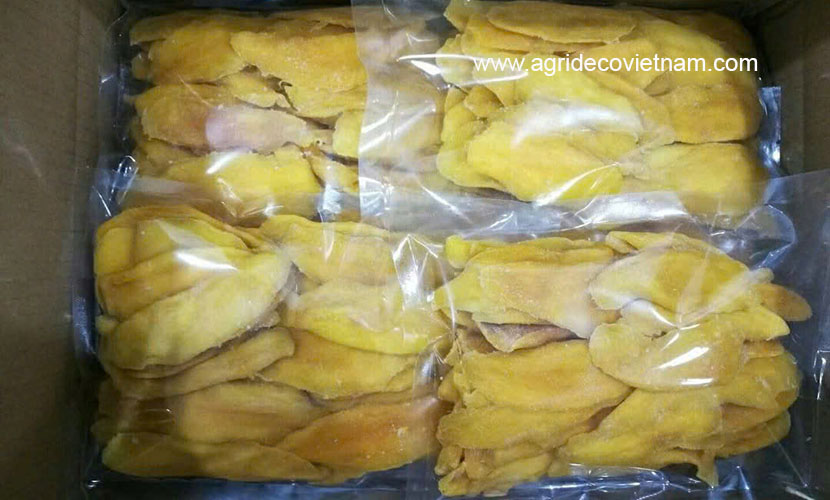
Dried mango from Vietnam
Vietnamese mango is highly regarded for its superior quality and appealing taste. Its competitive pricing makes it particularly attractive in both domestic and international markets. Also, the country benefits from a long harvesting season, stable yields, and relatively low labor costs. As a result, these factors contribute to the efficiency and sustainability of mango production.
Statistical data indicate that Vietnam produces approximately one million tons of fresh mangoes annually. Accordingly, this reflects the scale and significance of the country’s mango sector. China remains the primary and largest consumer of Vietnamese mangoes. Other high-standard markets, including the United States, South Korea, Japan, and the Netherlands, also import the fruit in increasing quantities.
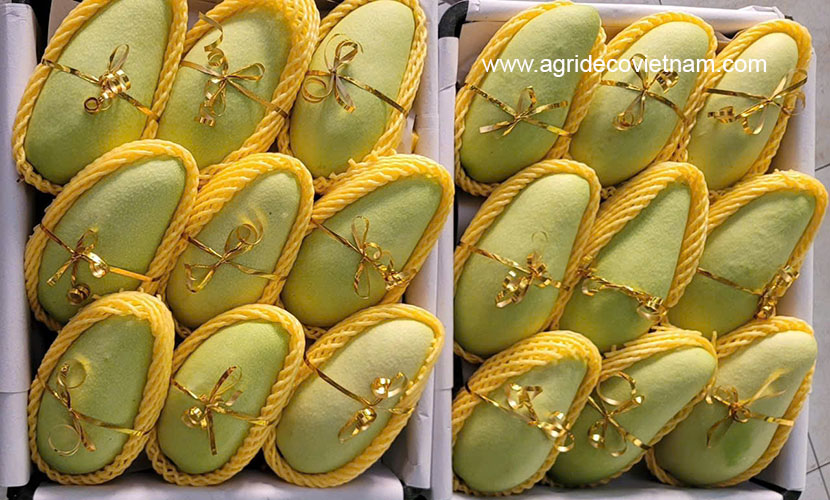
Yellow mango from Vietnam
The combination of favorable production conditions and consistent output has positioned Vietnamese mango as a competitive product. Moreover, strong international demand further reinforces their reliability on the global stage. This not only strengthens the country’s agricultural export profile but also enhances Vietnam’s reputation as a leading supplier of premium tropical fruits worldwide.
Vietnamese mangoes distinguish themselves in both domestic and international markets due to their naturally sweet flavor, dense and juicy flesh, low fiber content, and unique, appealing aroma. These intrinsic qualities not only make the fresh fruit highly sought-after but also provide a strong foundation for value-added processing.
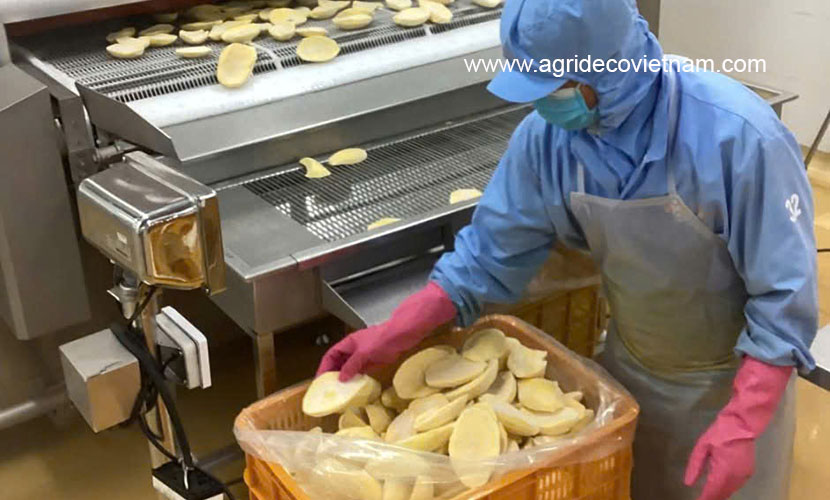
IQF factory of Vietnamese mango
In recent years, a growing number of domestic enterprises have expanded their operations beyond fresh mango production. They now also focus on the processing and export of mango-based products. Among the most prominent processed products are frozen mango and dried mango. These products cater to diverse consumer preferences while extending the fruit’s shelf life and market reach.
This development reflects the innovation within Vietnam’s agricultural sector. It also highlights the increasing global demand for high-quality tropical fruit products. By leveraging its premium mango varieties and expanding processing capabilities, Vietnam continues to strengthen its position as a competitive supplier of mangoes. It is also recognized as a reliable provider of mango-based products worldwide.
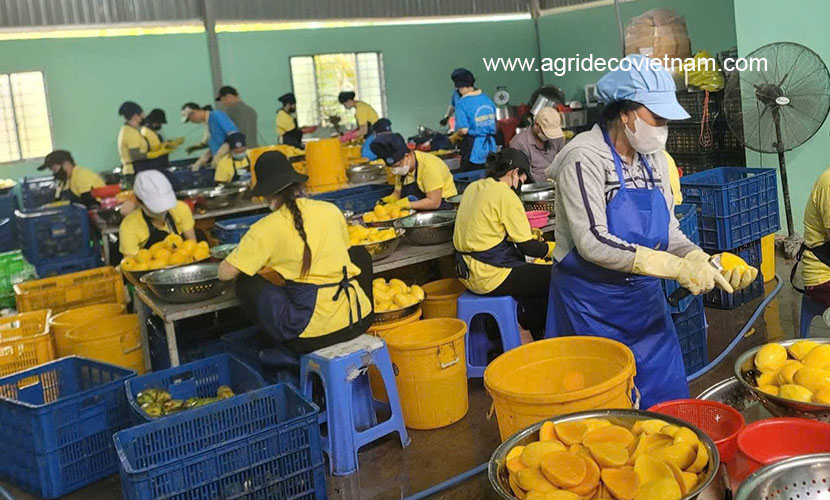
A factory of Vietnamese mango
If you need more information about mango from Vietnam, please contact us:
Company: Agrideco Vietnam Co., Ltd.
Address: No 02, Alley 325 Kim Nguu, Lane 24D, Vinh Tuy Ward, Hanoi, Vietnam
Tel/Kakao Talk/Whatsapp: +84 989 649 804
Website: https://agridecovietnam.com
Email: agridecovietnam@gmail.com
